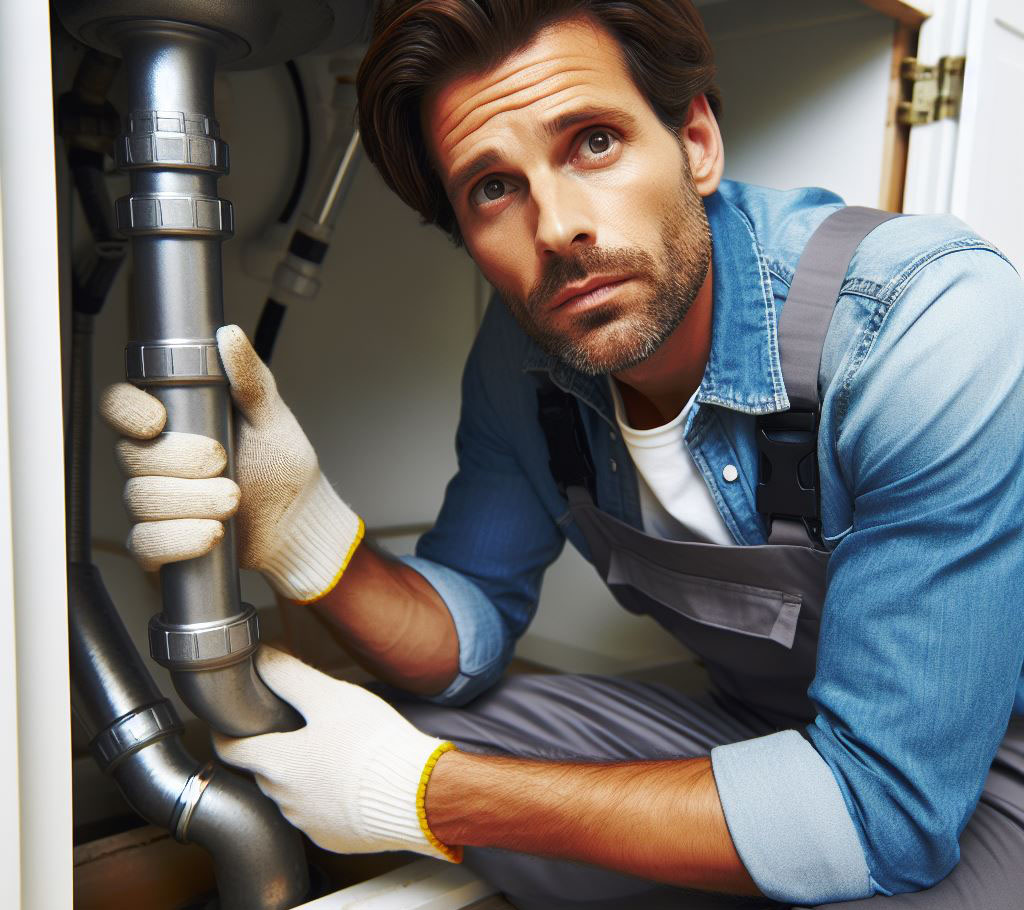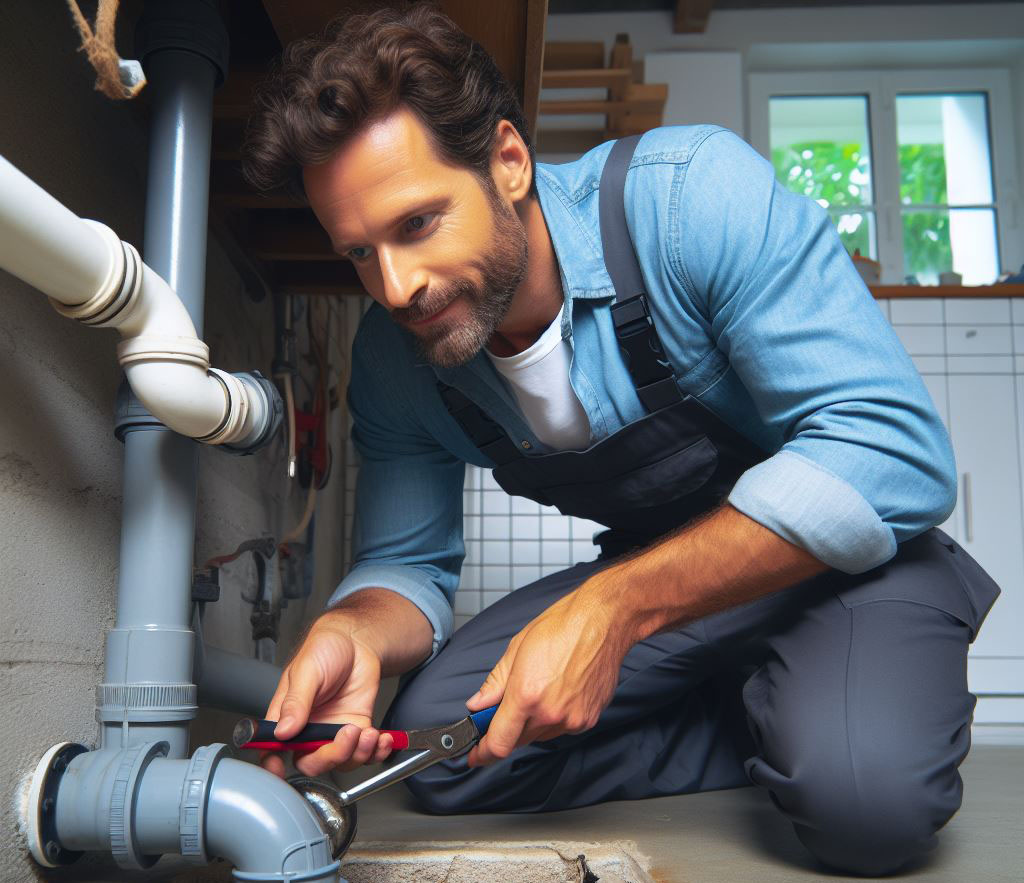In the world of home maintenance, few challenges are as universal and as frustrating as clogged drain pipes. These issues span the gamut from mildly inconvenient to outright disruptive, impacting the smooth flow of daily life. Whether it’s a shower that leaves you standing in a puddle or a kitchen sink that refuses to drain, the message is clear: action is required, and sooner rather than later. Ignoring a blocked drain isn’t just about dealing with the immediate annoyance, it’s about averting the long-term damage that can ensue. The good news is that, armed with the appropriate tools and techniques, most drain blockages are within the realm of a capable DIYer to resolve.

Understanding the Problem
The first step in any successful repair job is accurately diagnosing the problem. Drain blockages typically stem from common culprits—hair clogging shower drains, grease solidifying in kitchen sinks, or various objects that accidentally find their way into the plumbing. Yet, the nature of the blockage can vary significantly. Some are superficial, easily dislodged with minimal effort, while others are deep-seated, requiring more than just superficial treatment. Early detection is key, with signs such as water backing up, strange noises, or unpleasant odors serving as clear indicators that your plumbing is compromised.
Preparation: Tools and Safety
A well-prepared homeowner is halfway to solving the problem. Essential tools for addressing a clogged drain include:
- Plunger: Often the first resort, effective for dislodging minor clogs.
- Drain Snake: For more stubborn issues, a drain snake can navigate the twists and turns of your pipes to remove blockages.
- Chemical Cleaners: These potent formulas can dissolve clogs but must be used with caution due to their potential to damage plumbing and harm the environment.
- Homemade Solutions: A mix of baking soda and vinegar often provides an eco-friendly alternative to chemical cleaners, effective for minor clogs and regular maintenance.
Safety should never be compromised. When using chemical cleaners, protect yourself with gloves and goggles and ensure the area is well-ventilated. Preparing for potential messes with buckets, towels, and protective clothing is also wise, preventing minor issues from becoming major headaches.

DIY Solutions for Unclogging Drains
Diving into the world of DIY drain unclogging can feel like navigating a labyrinth without a map. However, with a dash of practical wisdom and a sprinkle of tried-and-true techniques, transforming from a bewildered homeowner to a confident DIYer is well within reach. Let’s embark on this journey together, armed with the insights gleaned from decades of experience in renovation and construction.
1. Plunging Method
The humble plunger is often underestimated in its ability to conquer pesky clogs. Here’s how to master its use:
- Ensure a watertight seal around the drain by adding enough water to cover the plunger’s head. This crucial step amplifies the force applied, making your efforts more effective.
- With a firm grip and a steady stance, press down gently to expel air from the plunger and create a vacuum. Now, with a series of forceful thrusts, you’re not just pushing against the clog but also manipulating pressure to dislodge it.
- After a few vigorous pumps, a swift pullback might just reward you with the sound of success: water gloriously swirling down the drain. If not, persistence is key, repeat the process until victory is yours.
2. Drain Snake and Auger
When the plunger meets its match, the drain snake or auger steps into the ring:
- Gently introduce the snake into the drain, twisting the handle to navigate through the twists and turns of your plumbing. This is a delicate dance with the clog, where patience meets precision.
- Upon encountering resistance, the moment of truth arrives. Crank the handle to engage with the clog, breaking it apart or capturing it to be withdrawn from its lair.
- For the most formidable foes, a power auger offers a mechanical advantage. However, wield this power with respect and caution, adhering strictly to safety guidelines to avoid a Pyrrhic victory.
3. Chemical Cleaners
In certain scenarios, chemical agents are called upon to dissolve what physical efforts cannot:
- Approach chemical cleaners with a healthy dose of respect, recognizing their potential to harm as well as heal. Compatibility with your pipes and the environment should dictate their use.
- Ventilation and protective gear are non-negotiables, safeguarding your health as you deploy these potent allies.
- For those inclined towards gentler methods, eco-friendly alternatives beckon, promising efficacy without the ecological footprint.
4. Natural and Homemade Solutions
The alchemy of household ingredients offers a kinder, gentler approach to drain unclogging:
- A simple concoction of baking soda followed by vinegar, left to work its magic before a hot water chaser, can often coax a clog to clear. It’s a testament to the power of pantry staples.
- Regular hot water flushes serve not only as a remedy but as a preventative measure, particularly effective against grease’s insidious creep.
5. Cleaning the P-Trap
At times, the solution lies within arm’s reach, beneath the very sink you use daily:
- Preemptively placing a bucket beneath the P-trap can save you from the messy consequences of unanticipated spills.
- The removal, inspection, and cleansing of the P-trap often reveal and resolve the obstruction, a straightforward fix that restores flow and harmony to your plumbing.
6. Preventive Maintenance
An ounce of prevention is worth a pound of cure, especially in the realm of plumbing:
- A mindful approach to what enters your drains, coupled with regular cleaning, can forestall the majority of blockages.
- Embracing routine inspections by professionals ensures that emerging issues are addressed promptly, averting crises before they manifest.

When to Call a Professional
Navigating the complexities of home plumbing issues requires not just a toolkit but a wealth of knowledge and experience. Recognizing when a clog has escalated beyond DIY remedies is crucial, as is understanding the invaluable role of professional plumbers in maintaining the health of your home’s plumbing system. Drawing from years of experience in construction and renovation, let’s delve into the nuances of when to call in the experts and how to keep your plumbing in prime condition through preventative maintenance and informed decision-making.
Signs that indicate the clog is too severe for DIY methods
- When exhaustive efforts with conventional DIY tools (plungers, snakes, and various home remedies) fail to dislodge a stubborn clog, it’s a clear signal that professional intervention is needed.
- Unusual behaviors in your plumbing system, such as water backing up in unrelated fixtures or persistent foul odors and gurgling sounds from drains, often indicate a problem that is complex and far-reaching.
- The presence of these symptoms suggests a blockage that is not only stubborn but potentially indicative of more serious plumbing issues that require the expertise and tools of a professional plumber.
The benefits of hiring a professional plumber for complex blockages
- Professional plumbers bring to the table specialized equipment, such as high-powered hydro jets and inspection cameras, that can accurately diagnose and effectively resolve even the most challenging clogs.
- Their expertise extends beyond merely clearing blockages, they can offer valuable advice on maintaining your plumbing system to prevent future problems, thereby safeguarding your home against potential damage and costly repairs.
How to choose a reputable plumbing service
- Opt for plumbers who are not only licensed and insured but also come highly recommended by trusted sources. Reviews and testimonials, whether through word-of-mouth or online platforms, can provide insights into their reliability and quality of service.
- Inquiring about their experience with similar plumbing issues and requesting upfront quotes can further ensure that you select a service that is both competent and transparent in its pricing.
FAQ Section
Regular maintenance is the cornerstone of a clog-free plumbing system. Kitchen drains, often susceptible to grease and food particles, benefit from a monthly cleaning regimen involving baking soda and vinegar. Bathrooms, particularly those prone to hair clogs, may require attention on a quarterly basis to maintain optimal flow.
While plungers can be effective for surface-level clogs in toilets and drains, they may not suffice for blockages that are deeply embedded in the plumbing system. In such cases, a plumber’s snake or professional intervention becomes necessary to adequately address the issue.
Chemical drain cleaners, though potent, carry the risk of damaging certain types of pipes, especially in older homes or systems utilizing PVC piping. Before resorting to harsh chemicals, consider safer, eco-friendly alternatives or mechanical methods as the primary approach to unclogging drains.
Persistent clogs despite exhaustive DIY efforts signal the need for professional plumbing services. This step is not a concession but a prudent decision to ensure the problem is resolved effectively and safely, protecting your home from further plumbing complications.
